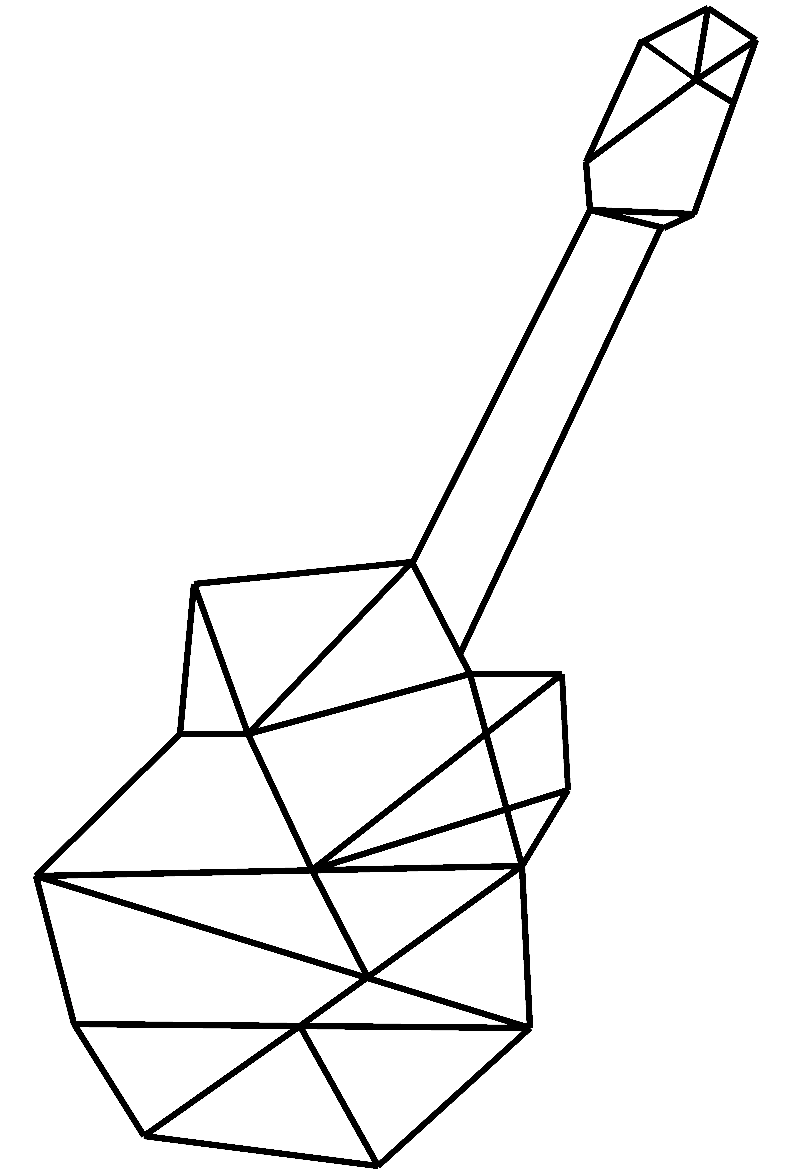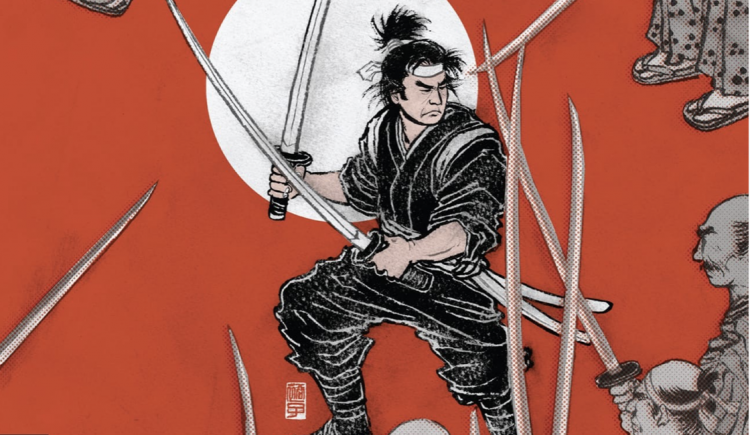Lessons from Musashi’s Book of Five Rings
“If you know the way broadly you will see it in everything.”
Miyamoto Musashi
The Book of Five Rings is a well-known text written in the seventeenth century by master Japanese swordsman Miyamoto Musashi. Although primarily focused on the martial art of swordsmanship, his philosophy is equally applicable to other disciplines. Musashi’s Dao, or ‘Way’, offers some invaluable lessons in discipline, the art of learning, and overcoming adversity we can adopt in our everyday lives, and certainly in our pursuit of mastery on our instrument.
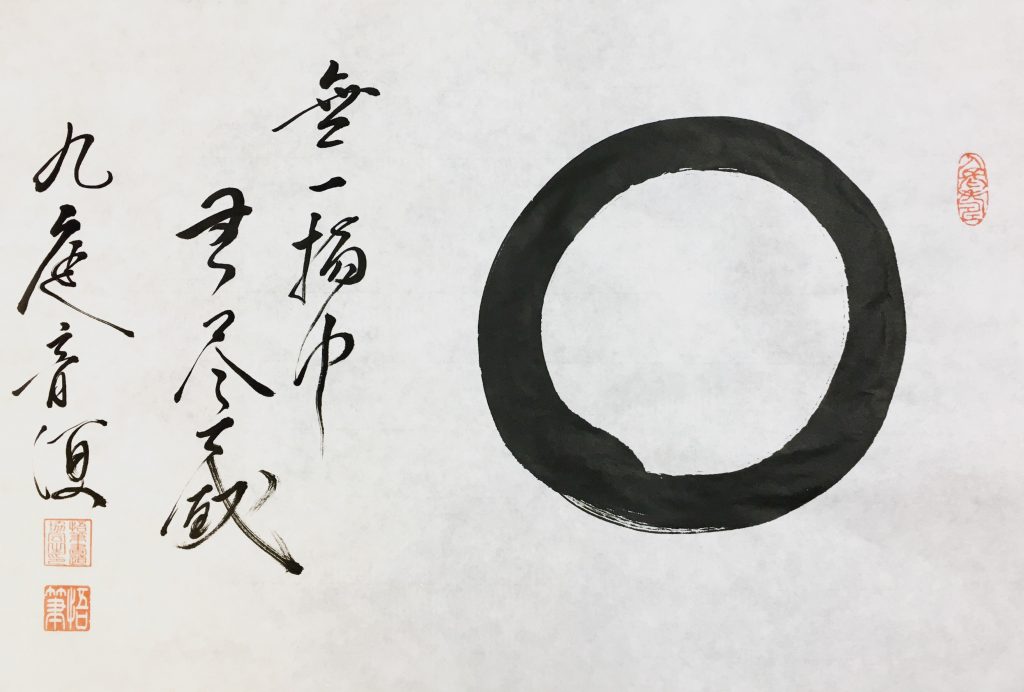
1. “Shin-ken.”
The Japanese word ‘shin-ken’ literally means ‘real sword’. Whilst often used in The Book of Five Rings to refer to an actual sword used by the master in his training and many battles, it can be viewed too in a more metaphorical sense. To do something with a real sword is to do it wholeheartedly, with utmost earnest. When we enter into any endeavour with the real sword attitude we take the task at hand completely seriously, as if our lives depended on it. This can improve our focus, technique, discipline and consistency. Creating some form of sanctity around our practise helps us to prioritise, improve consistency, and instill meaning in our learning.
2. “Become acquainted with every art.”
The value of this lesson could be seen in something as simple as playing a variety of genres and styles of music. Yet to go even deeper, in learning to play an instrument, just as in so many aspect of life, diversifying our skills and knowledge outside our area of expertise is crucial. In learning things outside of our primary professions or passions we improve our physical and cognitive ability to learn. I truly believe that, if approached in the right way, it is possible to improve our guitar playing every bit as much by learning carpentry, archery, or cooking for example, as by an actual guitar lesson or practise session. To become well-rounded as a player, and a human being, it is imperative to incorporate tangential skills, interests, and knowledge into our primary area of focus.
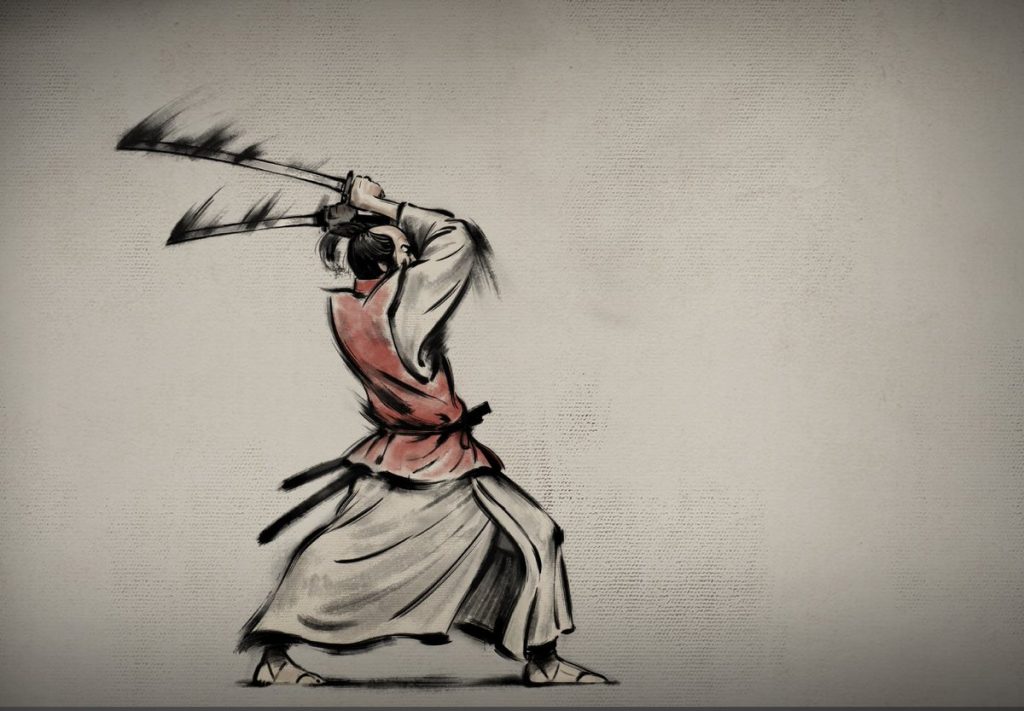
3. “Do nothing which is of no use.”
This quote pretty much speaks for itself. Everything that we do should help us towards reaching our goals, if it is not an end in and of itself. Nothing should be purpose-less. When we sit down to practise a piece, a particular technique, scale, chord, etc we make that our only focus. A clearly defined target from which we do not stray. This does not mean playing our instrument cannot be fun, it just means when we sit down to simply ‘play’ we make play the goal, we shall have the most fun possible noodling on our guitar.
4. “When you take up a sword, you must feel intent on cutting the enemy.”
Again, whilst there is an element of blunt literalism in many of Musashi’s statements, he is always simultaneously providing us with invaluable metaphors. When we take up a metaphorical sword then, we are embarking upon something which we hope to achieve; our intent to ‘cut’ the enemy is our resolve to following through with our actions until we have seen our task through to the end. This not only menas we finish what we start, but also illunimates us to the futility of starting things we do not intend to finish.
5. “To become the enemy means to think yourself in the enemy’s position.”
We could conceive ourselves lucky in the practise of a musical instrument that we have no enemy. No opponent with whom we must do regular battle, competing in order to realise our full potential. However, just as in the martial arts, our real opponent is only ever ourselves, inescapable. Perspective then can be invaluable. If we see those better than us as our teachers we realise our potential, we see those who know as much as we do as our equals and know we need not compete, and recognise those of inferior skill as being where we once were, we become teachers. And teachers are the ultimate students.
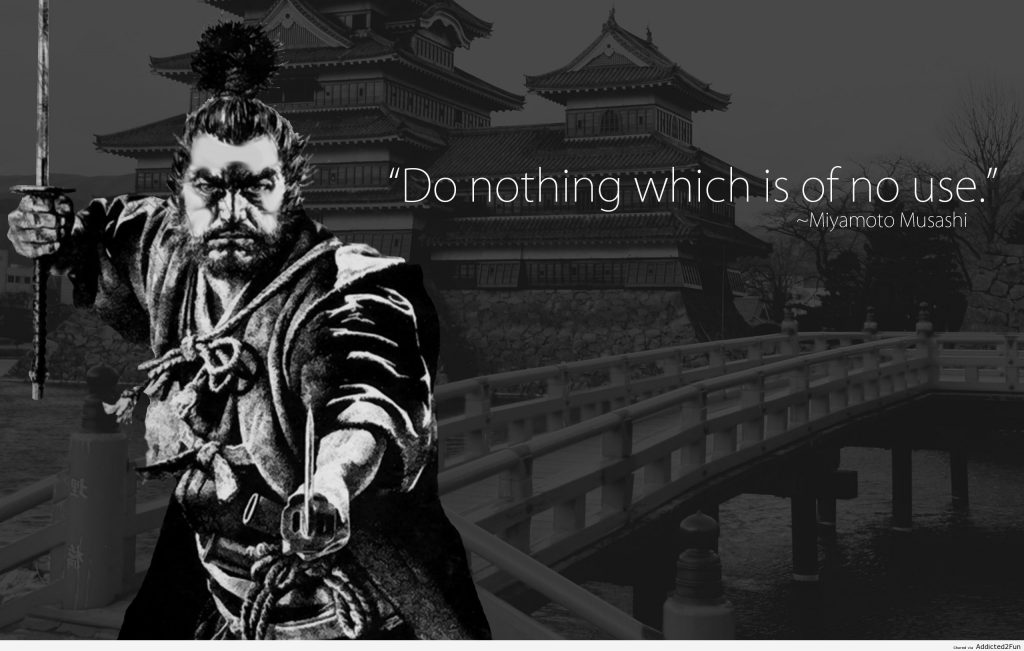
6. “The Way is in training.”
Throughout The Book of Five Rings, Musashi constantly seeks to remind us as the reader (and probably himself as the writer) that we must put the teachings therein into practise in order to develop a true appreciation and mastery of The Way. Just about any skill that we wish to master we are going to have to practice until it becomes an innate part of us. How we train is how we hope to be, The Way. If we are sloppy in practise we will be sloppy in performance. Our skills, strengths, and even mindsets can and will atrophy if we do not use them; so we should make a frequent and unrelenting effort to put that which we wish to advance in ourselves to good and regular use.
7. “Today is victory over yourself of yesterday; tomorrow is your victory over lesser men.”
Whilst often heavily focused on the defat of the enemy, the other, the shadow self; Musashi spends a good amount of time with the idea that simply studying without putting what has been learned into practice will not make one a master strategist or swordsman. Instead, we are to conquer ourselves as we were yesterday before conquering lesser foes, and eventually, conquering greater foes. In short, study alone will not produce mastery. No great swordsman becomes great without drawing his sword in battle, no great writer achieves reknown by never letting others read his words; likewise the true birth of a guitarist (or any musician for that matter) is in the ears of an audience. This could be simply friends or family, an open mic night, other band members, or a sold-out crowd; the result is the same. We practise to better ourselves; but always with the unwavering aim of simply being ourselves.
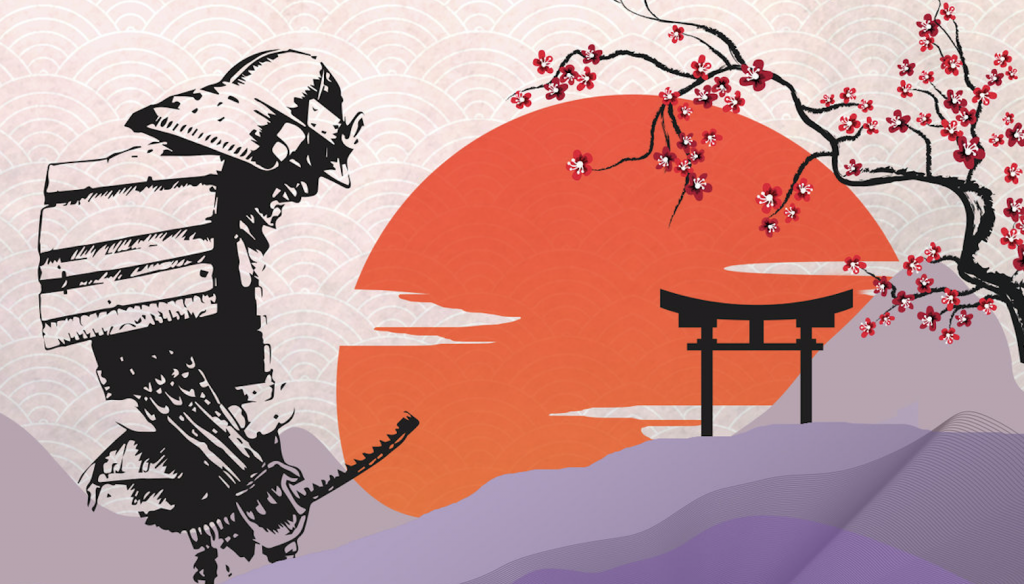
I hope you’ve enjoyed this latest post and feel inspired to both check out The Book of Five Rings, and take on board some of what it’s ancient master has to teach us. I’d love to hear your thoughts and take on the article, and book, in the comments below. If you’ve enjoyed this article, please take a look at our other blog posts. If you’re looking for guitar lessons in Leeds then please get in touch.
